On View
Artist Grace Weaver’s Buoyant, Sensual Paintings of People Moving Through Everyday Life Are on View at James Cohan—See Them Here
The show examines how our everyday movements through public are partly performative.
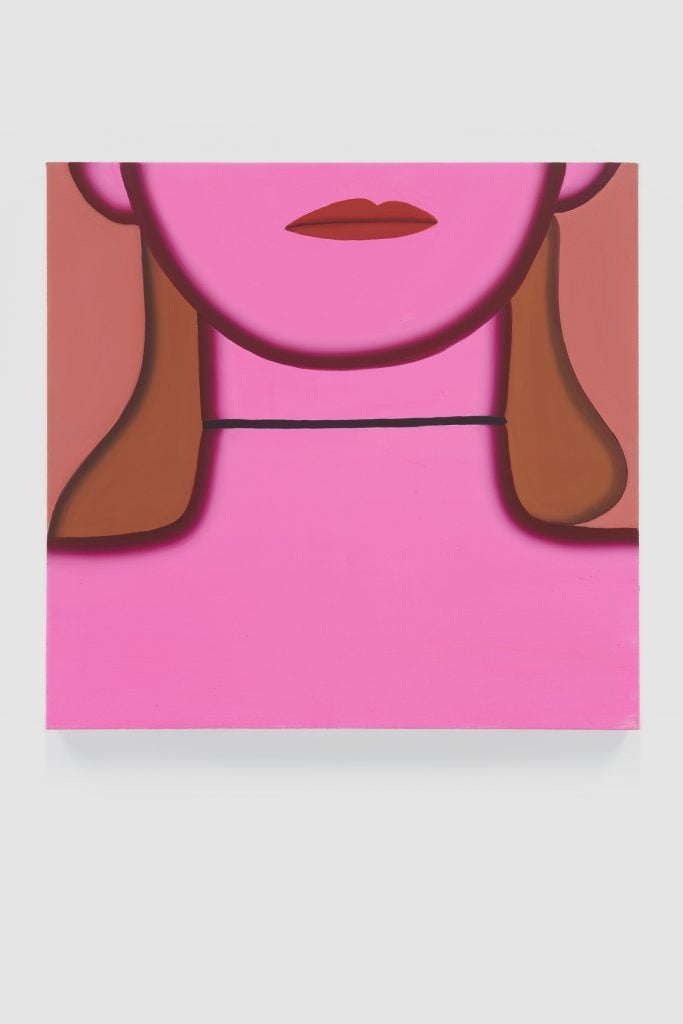
The show examines how our everyday movements through public are partly performative.

Caroline Goldstein

As galleries and art institutions around the world begin to reopen, we are spotlighting individual shows—online and IRL—that are worth your attention.
What the gallery says: “In her striking portrayals of the tragicomic everyday, Grace Weaver examines the charged social and cultural conditions that underlie self-concept, intimacy, and individual experience. Depicting elastic-limbed figures that collide on street-corners and tumble down steps, Weaver’s new paintings turn an incisive yet empathetic eye onto the self-conscious performativity and precarious footing of her contemporaries. In her work, the body itself becomes scenario: playful, sweeping lines and dense planes of luminous color act as linguistic elements, each directing [their] own physical weight and affect onto her female subjects.
Weaver’s paintings are an exploration of what she terms a ‘theater of public life’… These scenes allow her to build an audience within the painting, creating a chorality within the picture plane. The cast of characters, like Weaver, are as much subject to performing a strata of social anxieties as they are to wryly observing them.”
Why it’s worth a look: Weaver’s deft drawings and charcoal studies, which are full of lyricism and emotion, recall Eadweard Muybridge’s landmark 19th-century motion-study photographs, with each erasure marking another aspect of the body’s movement through space.
The paintings that result from Weaver’s many preparatory works are flattened with color, but not diminished in affect: the bright orange and hot pink of the female characters, outlined almost as animation cels, are hilarious and heartwarming. The balloon-shaped extremities and accordion-pleated skirts of some figures are reminiscent of Olive Oyl’s elasticity, and the tight-lipped portrait Choker II calls up an image of Daria, the surly heroine at the heart of MTV’s animated sitcom. Both are models of imperfect, fallible women—all the better for their foibles.
The “Steps” noted in the show’s title could be a simple reference to the physical flights of stairs the subjects clumsily traverse. But it could just as easily be an allusion to the steps of performance, the process of maturity, and the many hurdles of simply going about life.
What it looks like:
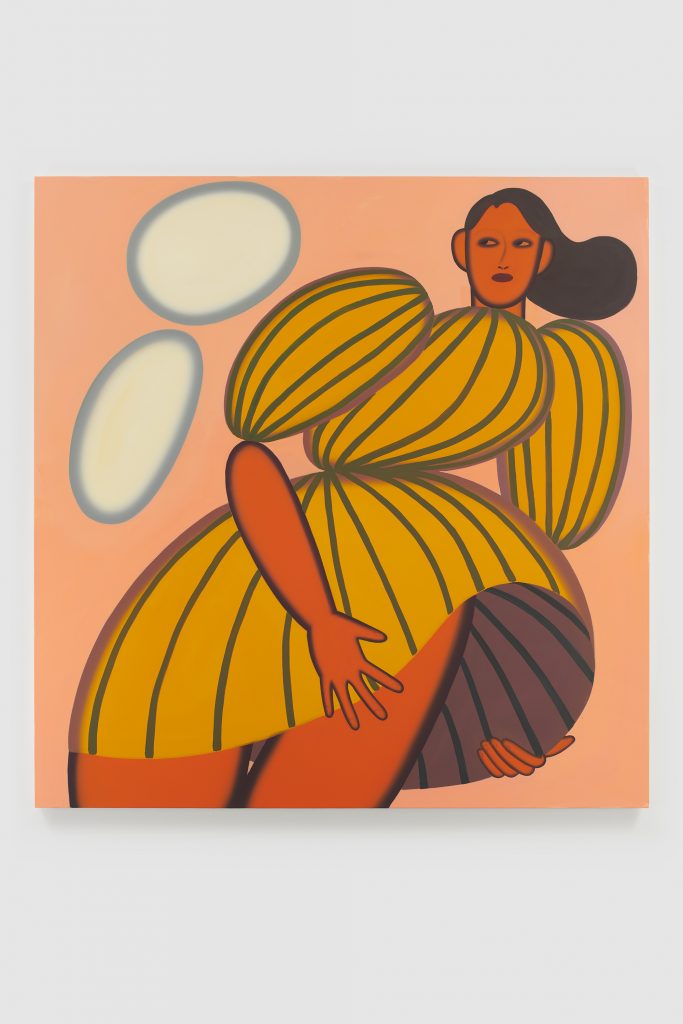
Grace Weaver, Affront (2020).© Grace Weaver 2020. Image courtesy the artist and James Cohan, New York. Photo by Phoebe d’Heurle.
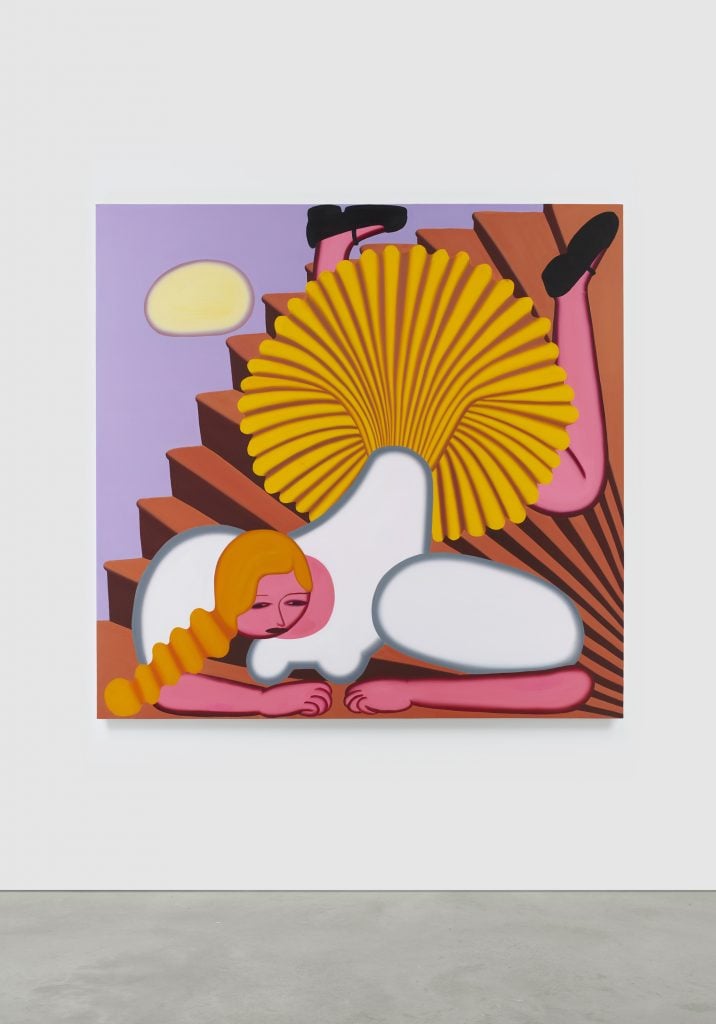
Grace Weaver, Misstep (2020). © Grace Weaver 2020. Image courtesy the artist and James Cohan, New York. Photo by Phoebe d’Heurle.
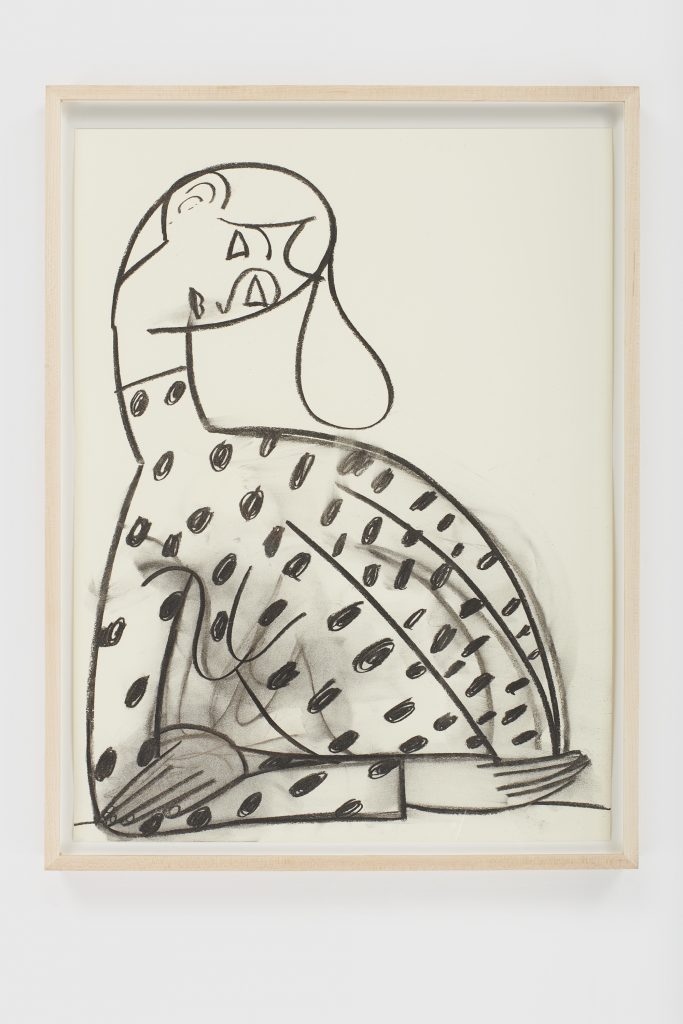
Grace Weaver, Droop (2020). © Grace Weaver 2020. Image courtesy the artist and James Cohan, New York. Photo by Phoebe d’Heurle.
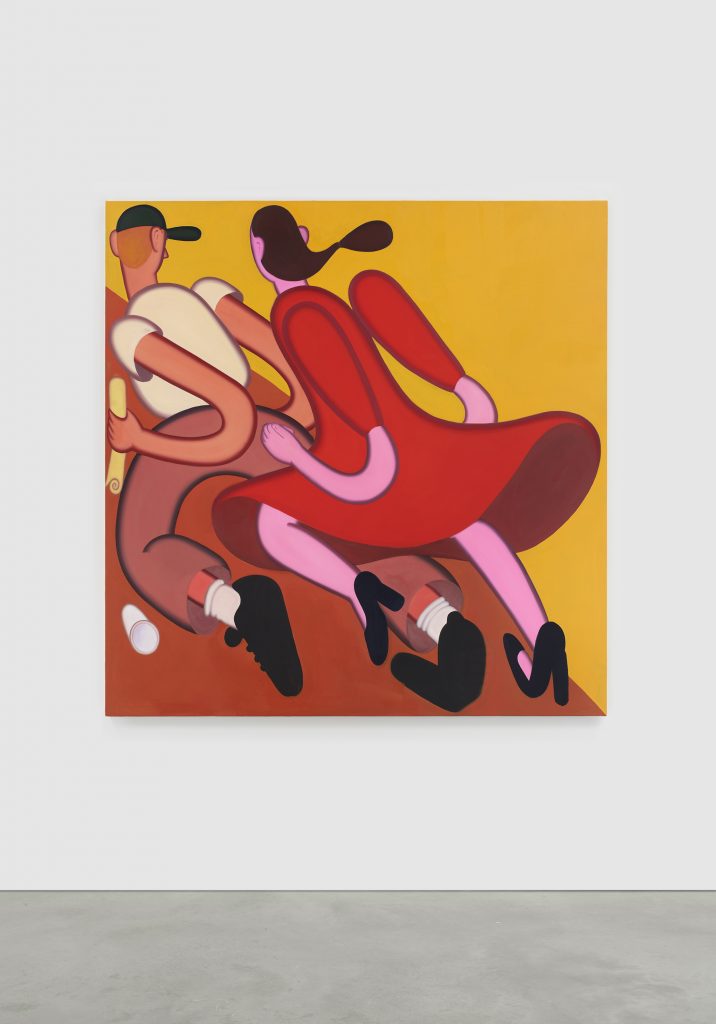
Grace Weaver, Limbo (2020). © Grace Weaver 2020. Image courtesy the artist and James Cohan, New York. Photo by Phoebe d’Heurle.
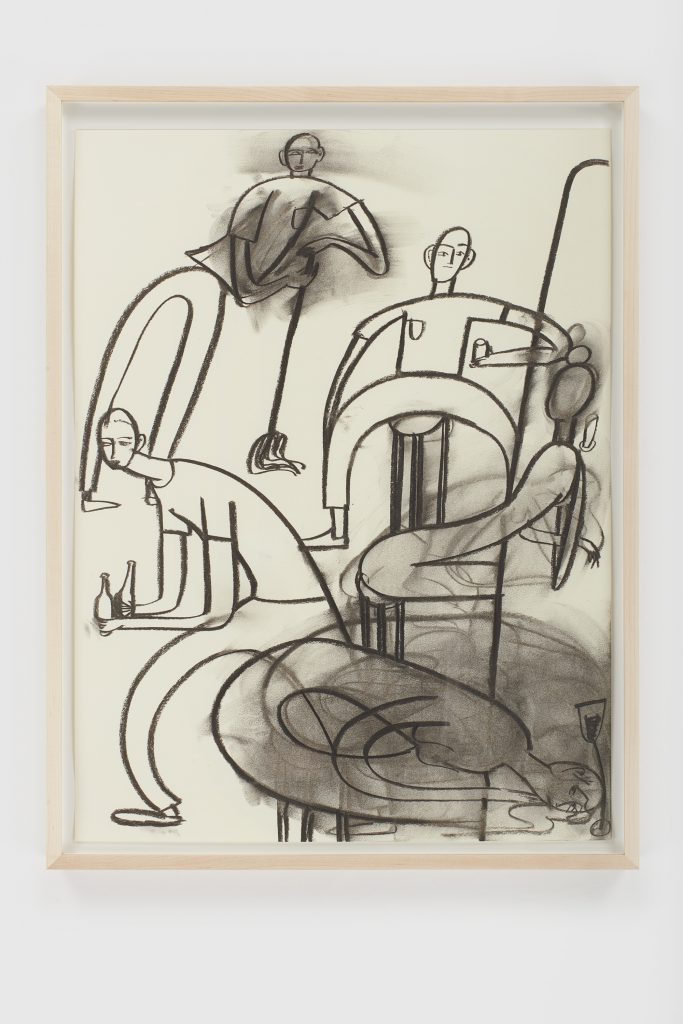
Grace Weaver, Study for ‘Limbo’ (2020). © Grace Weaver 2020. Image courtesy the artist and James Cohan, New York. Photo by Phoebe d’Heurle.
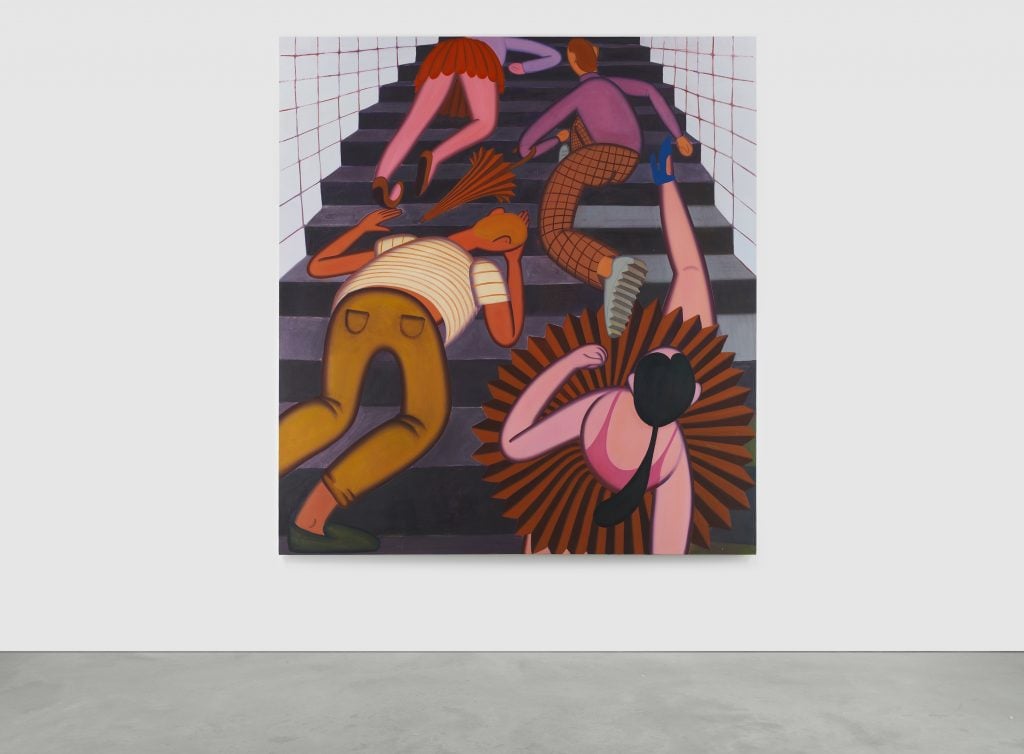
Grace Weaver, Transfer (2020). © Grace Weaver 2020. Image courtesy the artist and James Cohan, New York. Photo by Phoebe d’Heurle.
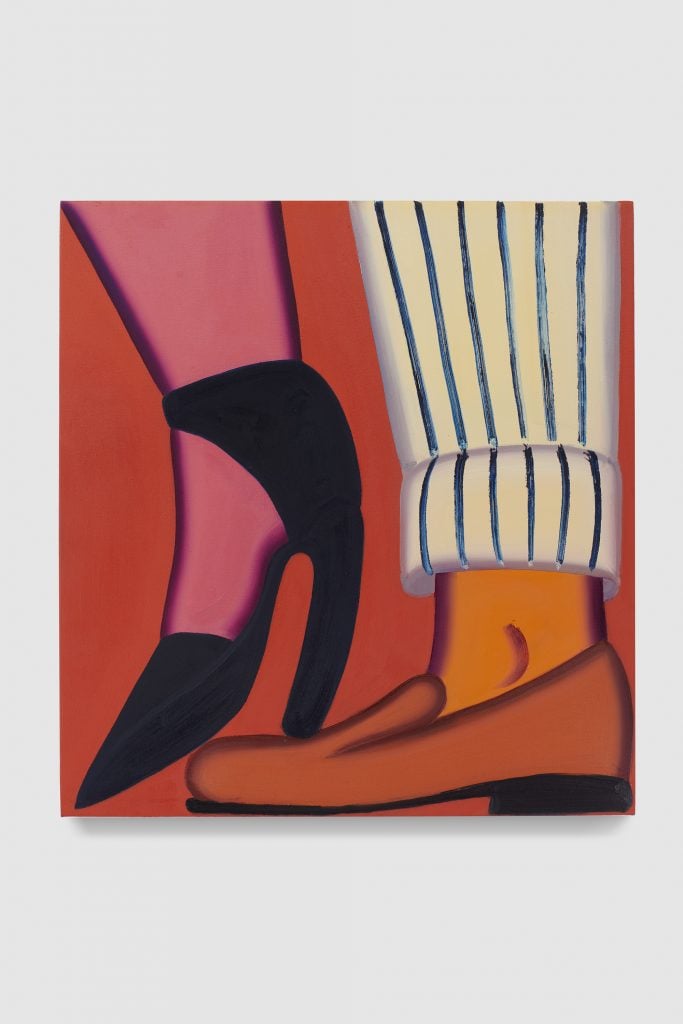
Grace Weaver, Step (2020). © Grace Weaver 2020. Image courtesy the artist and James Cohan, New York. Photo by Phoebe d’Heurle.
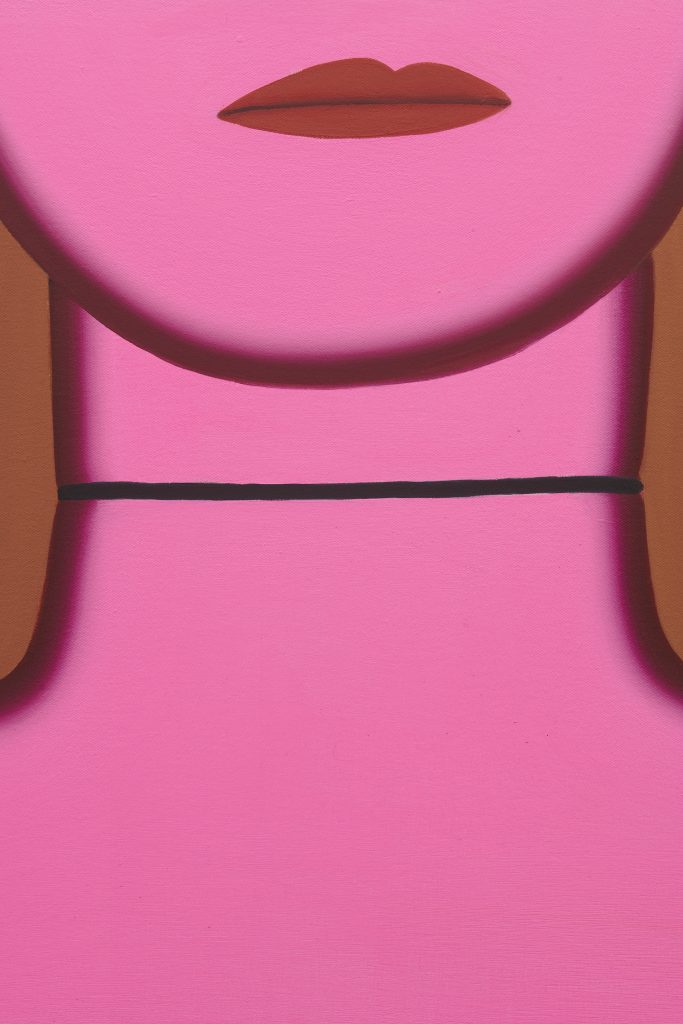
Grace Weaver, Choker II [detail] (2020). © Grace Weaver 2020. Image courtesy the artist and James Cohan, New York. Photo by Phoebe d’Heurle.
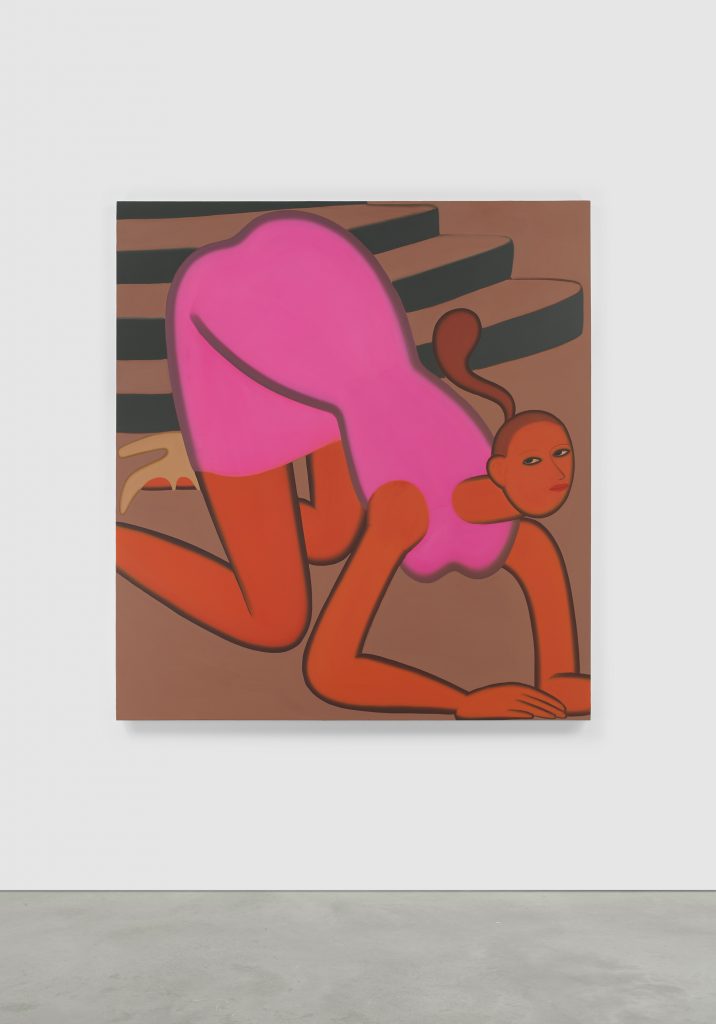
Grace Weaver, Stunt (2020). Courtesy of James Cohan Gallery.© Grace Weaver 2020. Image courtesy the artist and James Cohan, New York. Photo by Phoebe d’Heurle.
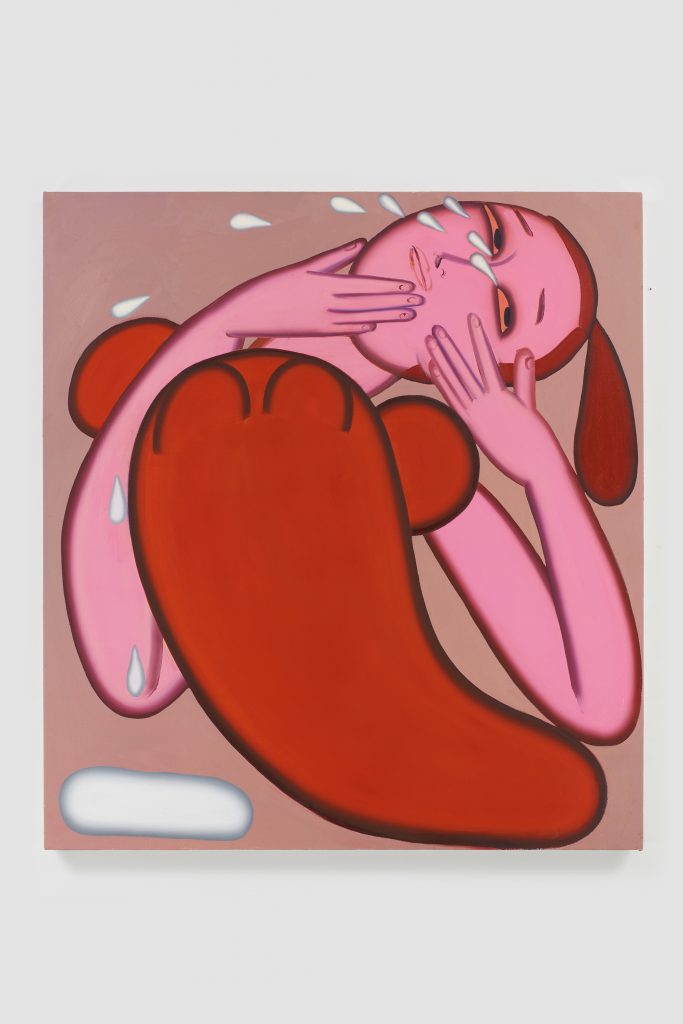
Grace Weaver, Crying (I, Upwards) (2020). © Grace Weaver 2020. Image courtesy the artist and James Cohan, New York. Photo by Phoebe d’Heurle.
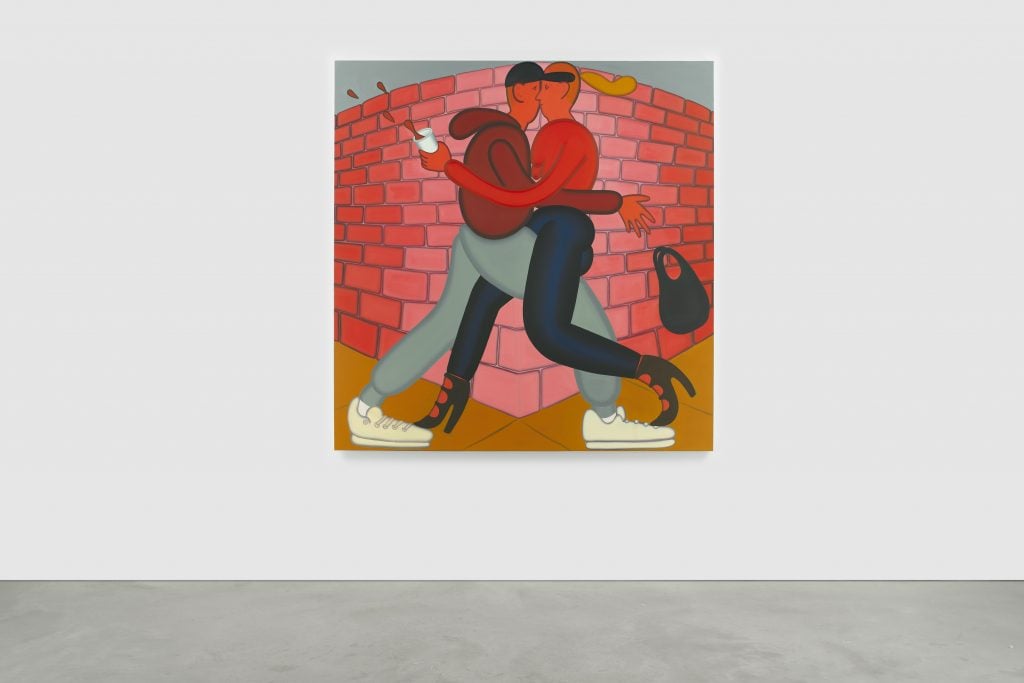
Grace Weaver, Confrontation (2020). © Grace Weaver 2020. Image courtesy the artist and James Cohan, New York. Photo by Phoebe d’Heurle.
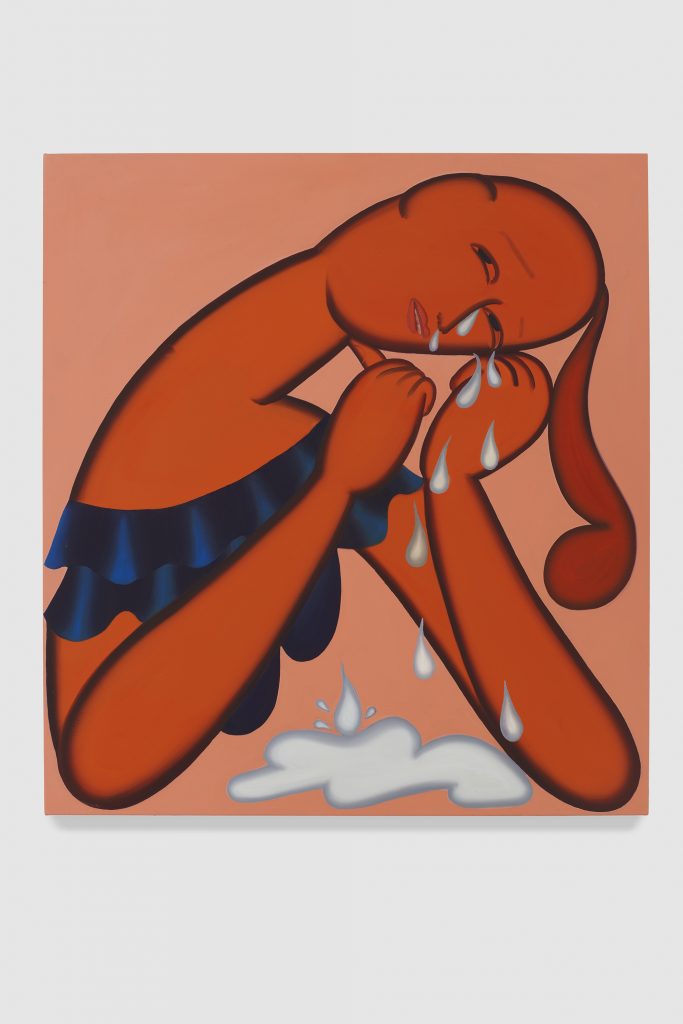
Grace Weaver, Crying (II, Downwards) (2020). © Grace Weaver 2020. Image courtesy the artist and James Cohan, New York. Photo by Phoebe d’Heurle.
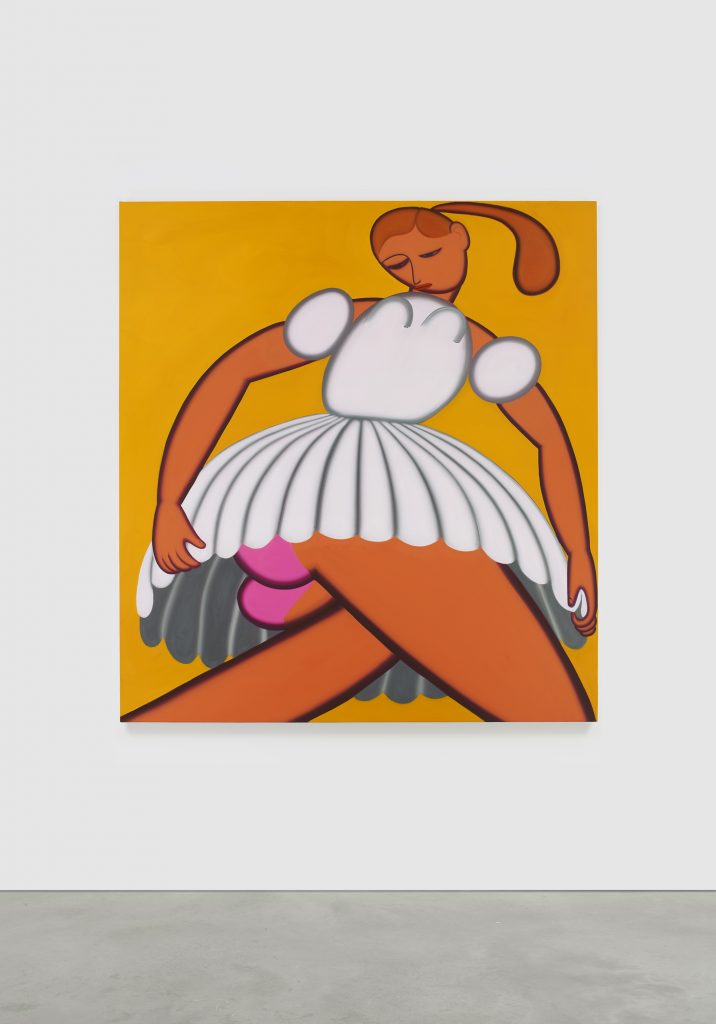
Grace Weaver, Shame (2020). © Grace Weaver 2020. Image courtesy the artist and James Cohan, New York. Photo by Phoebe d’Heurle.
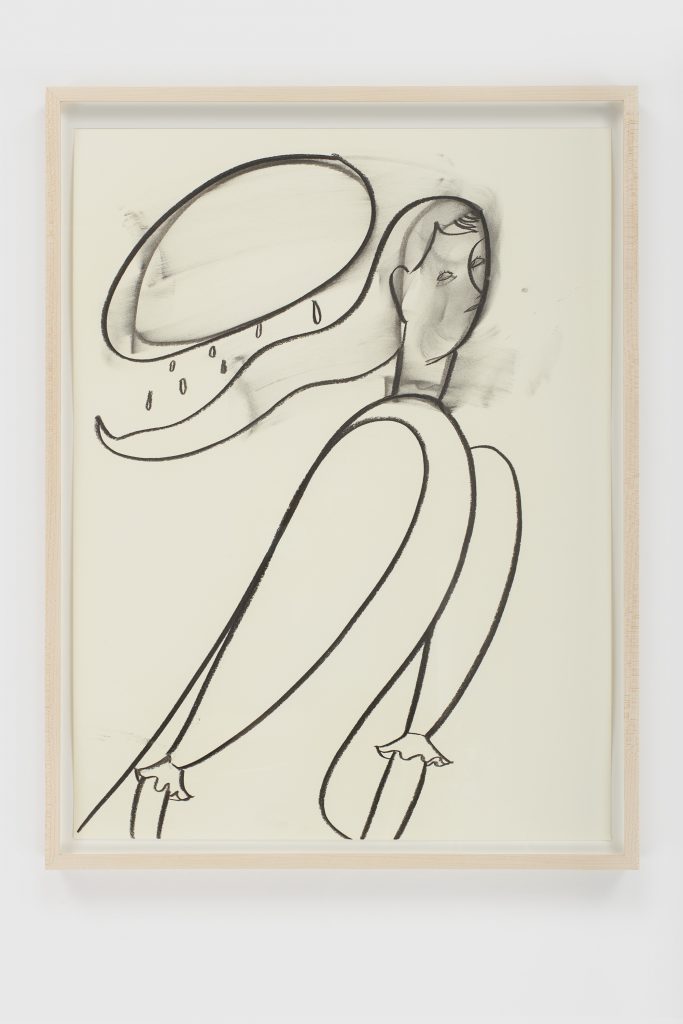
Grace Weaver, Sunshower (2020). © Grace Weaver 2020. Image courtesy the artist and James Cohan, New York. Photo by Phoebe d’Heurle.